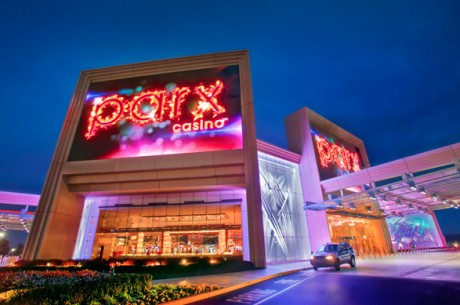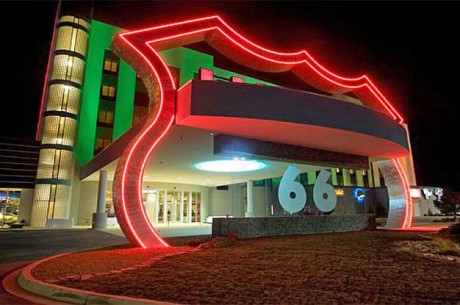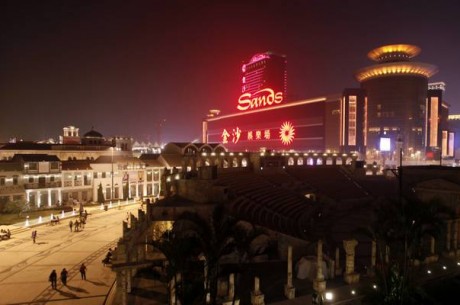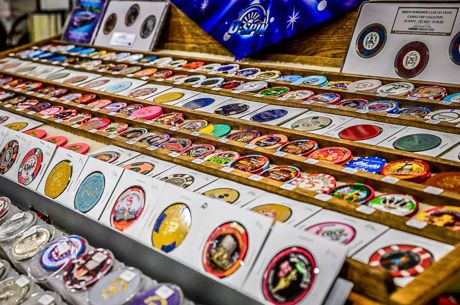Inside Gaming: Disagreement in Massachusetts, a Massive Resort in Vietnam, and More
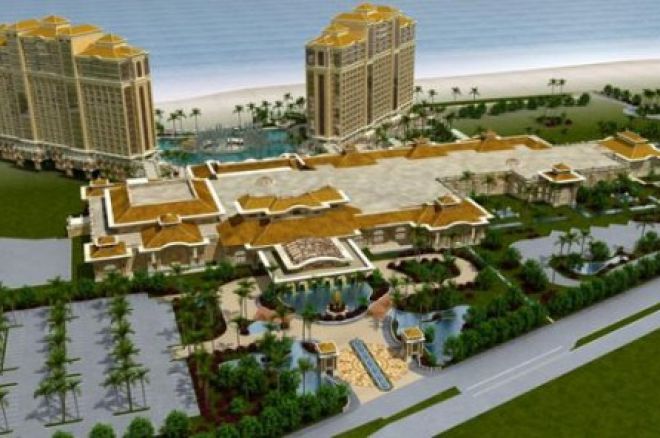
In this week’s edition of Inside Gaming, we take a look at the ongoing battle in Massachusetts between the Mashpee Wampanoag tribe and the state gaming commission, a mammoth resort project in Vung Tau, Vietnam, and play-for-free online gaming in Detroit, Michigan.
The Mashpee Wampanoag vs. The Massachusetts Gaming Commission
Two weeks ago, the Associated Press reported that Mass. Gov. Deval Patrick signed a compact with Mashpee Wampanoag Tribal Chairman Cedric Cromwell. Now, despite the new revenue-sharing compact, the state gaming commission wants to revoke the tribe’s exclusive right to develop a casino in the southeastern part of the state. The commission was prepared to vote on the decision on Thursday, but opted to delay the vote in order to hear from the public one last time.
A majority of the five-member committee is ready to field commercial bidders for the region, with Chairman Steve Crosby announcing that a delay is “not a wise choice.”
The vote was postponed for two more weeks for public comment.
“It will take some powerful comments to change my mind,” commissioner John McHugh added.
Howard Cooper, the tribe’s attorney, believes that the commission has no power to solicit bids from commercial contractors. According to Cooper, under the revenue-sharing compact Gov. Patrick signed, the commission must wait until the federal government decides whether or not the Wampanoag can have land in Taunton for the proposed $500 million casino project.
To claim the necessary space, the Bureau of Indian Affairs must take the proposed casino site into trust for the tribe. Opponents say that the Wampanoag will most likely lose their case in the U.S. Supreme Court, and even if they win, years of litigation will postpone the development of a casino, costing the southeastern regions much needed jobs and revenue.
“An outcome favorable to the tribe, I submit, is unclear at best,” McHugh said. “And even if it is favorable, it’s unlikely to come soon.”
The tribe, which was federally recognized in 2007, believes that it has the necessary information to win the case, and has laid out a timeline for the federal review, which has the casino opening in 2015.
Cooper added that commissioners are jeopardizing a strong revenue-sharing compact that will work for everyone by providing the state with money, and the region with economic development and jobs.
“The tribe intends to honor that compact, and will expect that the commonwealth will... as well,” he said.
Cezar Froelich, attorney representing the city of Taunton, submitting the following to the gaming commission, asking them to continue to wait:
“Assuming that the compact is approved by the Legislature, we believe that unless the Commission has determined that the tribe will not have land taken into trust by the U.S. Secretary of the Interior, the Commission would be subjecting itself to a substantial likelihood of litigation by the tribe for breaching the terms of the compact and proceeding in violation of the Act.”
For more, check out Enterprise News.
Good Morning, Vietnam
According to Tuoitre News, Asian Coast Development Ltd (ACDL), a company developing a very large resort in Vung Tau, Vietnam, announced that it has received a casino license from local authorities on Thursday.
The People’s Committee of the coastal province of Ba Ria approved licenses for the company to operate casinos in Ho Tram Strip, a resort project, according to Chief Executive Lloyd Nathan.
ACDL will be allowed to open casinos during the first phase of operation originally set for the first quarter of 2013. MGM Resorts International, one of ACDL’s partners, withdrew from the project in early March. MGM allegedly pulled out because the project lacked a casino permit.
The Vancouver-based company said that it will announce a new opening date once discussions with its partners conclude.
Ho Tram Strip will be the country’s first large-scale integrated resort. The property spans over 400 acres and is just a two-hour drive from the capital of Ho Chi Minh City. The $4.2 billion complex will include a 1,100-room hotel, and the first phase, which is completed, includes 541 five-star hotel rooms, nine restaurants, and a Las Vegas-modeled casino.
ACDL is currently constructing Tower 2, adding 559 more rooms, and an 18-hole, Greg Norman-designed championship golf course.
“ACDL is evaluating a suitable new and exciting brand for its first resort,” Nathan said in a statement. “ACDL and its dedicated team of more than 2,000 highly trained professionals is looking forward to opening this five-star, first of its kind facility and helping showcase Vietnam as a must-see tourist destination in the world.
Harbinger Capital and Pinnacle Entertainment Inc are both principal shareholders, and remained committed to the project. Pinnacle acquired a 26% stake of ACDL in May of 2011.
Vietnam has licensed five small-scale casinos, and there are gambling venues at several major hotels, but Vietnamese citizens are barred from gambling. In September 2012, the Ministry of Finance suggested legalizing casino operation in Vietnam, but only to certain, highly qualified operators.
“Investors should have at least $4 billion worth of capital and ten years of experience in tourism management to be allowed to open a casino in Vietnam,” the ministry said in the bill.
Play for Free Online Gaming in Detroit?
On Thursday, the Detroit Free Press reported that Soaring Eagle Casino plans to launch a “play for free” website. The website won’t take real money unless Congress changes its restrictions on online gambling.
Raul Venegas, the casino’s marketing director, told the Morning Sun of Mount Pleasant that the website will be for “marketing and fun.” He adds that the casino has “no intentions to offer real-money gaming online.”
Aristocrat Technologies, an Australian company, says it will develop a new site for the casino operated by the Saginaw Chippewa Indian Tribe. The site is expected to offer virtual versions of electronic games, as well as some table games. All 4,200 of Soaring Eagle’s electronic gaming devices are provided by Aristocrat Technologies, and the virtual casino will be integrated with the land-based casino via the company’s exclusive “nLiveLink” technology.
“As we embrace new technology and prepare for the next phase of our business ventures, we are very happy to have Aristocrat working side by side with us,” Venegas added.
Soaring Eagle will be the fourth site powered by Aristocrat’s nLive system, and the largest site ever built for a tribal partner.
“We are thrilled that Soaring Eagle Casino & Resort has chosen to expand their relationship with us in the online space,” Aristocrat Vice President of System Sales and Marketing Kelly Shaw said in a statement. “We are thrilled that Soaring Eagle trusts us to take their incredible brand online.”
In 2012, a coalition of Native American Tribes asked Congress to amend laws and regulations governing Indian-owned casinos to govern online gaming. No action has been taken, but in November if 2012, Northern Bear Casino, a tribal casino in Canada, became the first of its kind to launch real-money online gaming.
Even if players are barred from wagering real dollars on the site, the company says the casino would be able to enroll club members, and the players will be able to check their balances through the online casino.
For more, check out The Morning Sun.
Photo courtesy of Tuoitre News.
Get all the latest PokerNews updates on your social media outlets. Follow us on Twitter and find us both Facebook and Google+!

